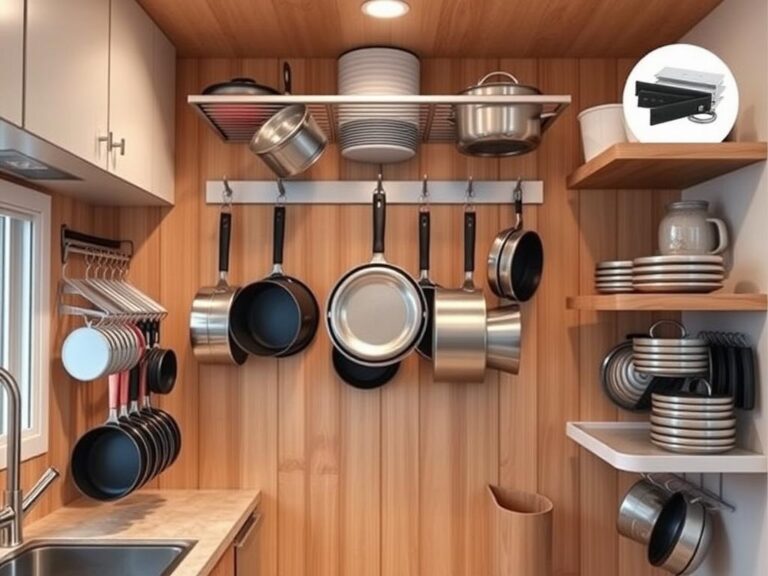The Best Water Filters For Clean Drinking Water
This post may contain affiliate links which means I may receive a commission for purchases made through links at no extra cost to you. I only recommend products I truly believe in. Thank you for your support!

If you are looking for a water filter that will clean your drinking water, you have come to the right place. You will find that there are many different options for you to choose from, so choosing the best water filter for your needs is easy. There are three main factors you should consider when it comes to choosing the right filter for you. These are taste, ion exchange, and reverse osmosis.
Reverse osmosis
Reverse osmosis water filters can provide you with a supply of clean drinking water. However, before you buy one, you must know more about its working mechanism.
A reverse osmosis system uses a high-pressure pump to push water through a semi-permeable membrane. The membrane allows passage of dissolved salts and inorganic substances, but it blocks most organic materials. As a result, most contaminants can be removed.
Using this process, you can get rid of chlorine, nitrates, paints, and even microorganisms. It also can remove undesirable color, odor, and taste.
Water entering an RO system passes through pre-filters, which remove contaminants. Carbon filters help to remove chlorine, unpleasant odors, and sediment.
After the filtered water leaves the filter, it enters the post-filter, where the remaining odors are removed. This phase also polishes the membrane.
Some reverse osmosis water filters for home use are designed to be installed in the main pipeline of a house. These systems are easy to maintain and can produce a large amount of pure water.
Unlike bottled water, the process used in producing this type of water does not use petroleum or other chemicals. Instead, it recycles and recovers waste water. Moreover, it reduces treatment costs and improves the efficiency of waste treatment.
Compared to bottled water, the reverse osmosis system is cheaper and more environmentally friendly. In addition, it reduces the redundancy in the water purification system.
Reverse osmosis drinking water systems should be cleaned annually. If you need to replace your filters, you can buy replacement parts online.
Most bottled water is purified through reverse osmosis. Besides, many tropical fish can survive in treated tap water.
Ion exchange
Ion exchange water filters are used to remove contaminants from water. These are used for a variety of reasons, including agricultural and industrial applications. This technology is highly reliable, making it an ideal solution for a wide range of uses.
Typical uses for ion exchange systems are for disinfection, deionization, water softening, and dealkalization. They can also be utilized in food processing, mining, and manufacturing.
The ion exchange process works by replacing the undesirable ions with the desirable ions. For example, if the water has a high concentration of calcium ions, it will be replaced by positively charged ions. However, the system’s ability to clean the water is limited by clogging.
In order to prevent the system from becoming clogged, it is important to use a pre-treatment process to keep the resin free of fouling. It is also important to replace the filter regularly.
The type of ion exchange resin you choose will depend on the contaminants in the water. Typical contaminants include nitrate, chloride, and fluoride. If you plan to use the system to remove iron, it is important to use a cation resin.
Another type of resin used in ion exchange systems is an anionic one. These resins swap the negatively charged ions with the positively charged ions on the resin surface.
Anionic resins are used for a wide range of contaminants, including nitrate, chloride, and many others. Since the ions are highly ionized, they are able to convert an acidic solution into pure water.
Anionic exchange is a superior method to other technologies. While other methods can remove some of these contaminants, they are unable to completely eliminate them.
Activated carbon
Activated carbon water filters are an important component of municipal and industrial water treatment facilities. These filters remove many contaminants from water, which helps improve its taste and quality. Activated carbon filters also help protect other filters from damage.
Activated carbon is a substance that chemically bonds with contaminants and removes them from drinking water. It has been used for decades to filter water and improve its taste.
Activated carbon is generally used in combination with other treatments methods. Typically, activated carbon is used after preliminary disinfection processes and sedimentation.
Activated carbon is an efficient way to remove chlorine and other chemicals from water. In addition, it is effective at removing some volatile organic compounds (VOCs) from water. However, the effectiveness of AC filters depends on the amount of contaminants in the water.
Using a whole house filter system provides safer, cleaner water for cooking and bathing. Adding a reverse osmosis system can reduce the levels of lead and other common chemicals.
Activated carbon can be found in many different products. This includes powdered, granular, and carbon block forms. Each type has a different performance characteristics and surface area. The size of the pores and the flow rate of the water will determine the filter’s effectiveness.
Activated carbon can be a cost-effective and reliable solution for filtering large amounts of water. Carbon filters come in a variety of sizes and shapes. Some are simple bottles that are inserted into faucets. Other types are more complex. One-stage filters are more effective, but they may be more costly.
An activated carbon filter’s surface area and porosity can be used to determine how effective the product is at removing contaminants. A pore size of less than one micron is a good indicator of a filter’s ability to remove heavy metals.
Fluoride
Fluoride water filters are a great way to clean your drinking water. There are many different kinds of filtration systems that remove fluoride from water. Some of these include reverse osmosis, distillation and deionization.
A reverse osmosis system works by using a high pressure pump to force water through a semi-permeable membrane. This leaves fluoride on the reject side.
Alternatively, there are deionization filters, which are a little more expensive and require a lot of maintenance. These filters work by removing all ionic particles from the water. The filter media typically lasts about a decade.
Another option is a pitcher system. These are portable and usually designed to provide filtered water for drinking. They are also inexpensive.
Some of these systems use activated carbon, which is made from coconut shells. It helps improve the taste of the water.
Countertop filters are easy to set up and not difficult to maintain. There are a few brands of these filters, and they have a wide variety of functions.
One of the most popular types of water filtration systems is the Berkey system. Berkeys are portable countertop units that remove a wide variety of contaminants.
If you want a more durable, long lasting fluoride water filter, you should consider buying the Home Master Fluoride Water Filter. This heavy duty equipment provides up to 80 ounces of filtered water per day.
Another fluoride water filter you may want to consider is the Clearly Filtered bottle. This BPA-free, phthalate-free bottle is covered by a lifetime warranty.
Fluoride water filters are available in countertop and whole house filtration systems. They can be installed on faucets or in other appliances.
Taste
There are many types of water filters on the market. Some are made for commercial purposes, while others are designed for home use. The quality of your tap water can affect your well being. It’s wise to take steps to improve your water quality.
A high quality water filter can improve the taste and odor of your home’s supply. In addition, there are many other benefits to using a water filter. For example, a water filter can reduce the amount of bacteria and rust that may enter your faucet. Furthermore, a water filter can eliminate unwanted chemicals, such as chlorine.
While there is no one right solution to achieving better water quality, a few smart moves can go a long way towards delivering clean, pristine drinking water. This includes having your filter cleaned and replaced on a regular basis. Keeping your filter cleaned and properly sealed will help prevent leaks and microbial growth.
Aside from having a well maintained water filter, it’s also a good idea to know your limitations. Water filters that aren’t able to handle high pressure or heavy amounts of water may be the cause of your water woes. Similarly, a water softener may need a good cleaning to maintain its luster.
If you’re looking for the best water filters, be sure to browse the internet. You can find reviews and recommendations from experts and consumers. Using a search engine to find the best water filter for your needs will save you time and money. Before you buy, make sure the filter is certified to the highest standards. Once you’ve found a top-notch water filter, you’ll be able to drink better water for years to come.




